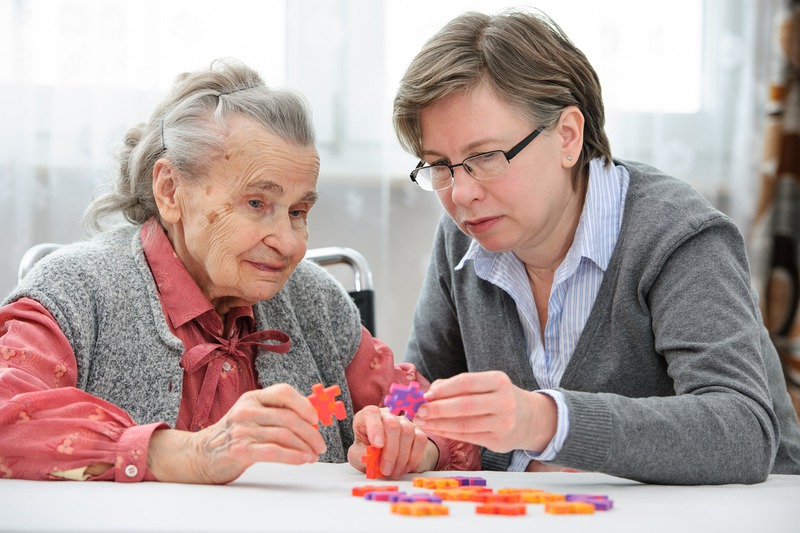What Support Does Respite Ministry Offer to Dementia Caregivers
Being a caregiver for someone with dementia carries a unique set of challenges. Dementia caregivers often experience emotional strain, physical exhaustion, and a deep sense of responsibility. Yet, many do not know where to turn for support. Respite ministries provide a sanctuary of relief and understanding to help caregivers manage their enormous duties. By exploring how these ministries assist, caregivers can discover pathways to respite and empowerment.
Support Offered by Respite Ministry for Dementia Caregivers
Respite ministries are more than just havens for caregivers; they’re integral support systems that provide varied assistance. Let’s delve into some of the primary ways these ministries support dementia caregivers, ensuring they receive the help needed to continue their essential work.
Emotional Support and Guidance
Being at the emotional frontlines of dementia care can be draining. Respite ministries offer one-on-one counseling to help caregivers navigate the emotional complexities of their roles. Professional guidance allows caregivers to process their feelings and address emotional hurdles healthily. Group sessions offer a shared space where caregivers find empathy and mutual understanding, creating bonds that make the caregiving journey less isolating.
Connect with Like-minded Individuals
-
Support Groups: Regular meet-ups to share experiences and strategies.
-
Community Events: Gatherings providing a sense of belonging and camaraderie.
-
Workshops: Opportunities to learn practical caregiving skills from experts.
Temporary Caregiving Relief
Continuous caregiving can lead to burnout, a significant challenge many caregivers face. Respite ministries extend temporary relief options by providing short-term caregiving services. Trained volunteers or hired professionals take over responsibilities for several hours or days, allowing caregivers time to relax, attend to personal affairs, or simply catch up on rest. This respite is crucial for maintaining a healthy balance in caregivers’ lives.
Practical Assistance and Resources
The everyday responsibilities of caregiving can be overwhelming. Respite ministries step in with practical assistance, such as loaning medical equipment, providing transportation services, and delivering meals. These services relieve caregivers from a portion of their daily burdens, ensuring that they have the resources needed for high-quality caregiving. Access to community resources prevents caregivers from facing these challenges alone.
Accessing Regional Resources
Caregivers in specific areas have tailored resources available to them. For instance, caregivers searching for Georgia dementia respite ministry options can find specialized resources suited to their local environment. These ministries support caregivers in Georgia by providing necessary assistance, enhancing their capacity to care effectively.
Navigating the Caregiving Challenge with Education
Education is a powerful tool for caregivers. Respite ministries host workshops and training sessions covering a vast array of topics. Understanding dementia behavior, learning effective communication strategies, and adopting manageable care routines are some areas covered. These educational opportunities empower caregivers with knowledge, helping navigate the complexities of dementia care more effectively.
Steps to Access Respite Ministry Services
-
Identify Needs: Determine the specific type of support required.
-
Research Options: Use online resources and community networks to find respite services.
-
Reach Out: Contact local ministries to inquire about available programs.
-
Visit Facilities: Attend orientations or informational sessions when possible.
-
Schedule Support: Arrange for services that fit into caregiving routines.
In Alabama, caregivers can explore opportunities provided by examples like respite ministry in Alabama. These services are designed to address local caregivers’ needs comprehensively, ensuring that help is accessible and practical. Accessing regional respite resources means having a support network ready to assist caregivers at every challenge stage.
Community and Connection
Having a thriving community greatly enhances the caregiving experience. Respite ministries create environments where caregivers connect, gain strength from one another, and form support networks. Support groups and regular gatherings offer a chance for caregivers to share their experiences and foster meaningful relationships. The sense of shared journey and understanding alleviates feelings of loneliness, reinforcing caregivers’ commitment to their roles.
Holistic Approach to Care
Respite ministries focus on all-encompassing support, catering to caregivers’ mental, emotional, and physical well-being. By providing various resources and services, they ensure caregivers have the tools needed for a healthier, balanced life. Engaging with these ministries helps caregivers build resilience and maintain a positive caregiving experience.
Caregivers in Kansas can also seek assistance from resources such as dementia respite ministry Kansas. These options provide personalized support, tailored to meet the unique requirements of caregivers in the area, enabling effective caregiving practices.
Empowering Caregivers through Volunteering
Engaging in volunteering can be a fulfilling way for caregivers to connect with respite ministries. By participating in community service, caregivers not only contribute positively to others’ lives but also find rejuvenation and purpose. Involvement in these activities strengthens the sense of community and belonging while providing critical diversions from daily caregiving tasks.
Benefits Caregivers Can Expect
-
Stress Relief: Regular respite reduces stress and prevents burnout.
-
Improved Care Skills: Educational workshops enhance caregiving capabilities.
-
Emotional Support: Counseling enhances emotional resilience and support networks.
-
Practical Assistance: Resource availability eases day-to-day caregiving tasks.
-
Community Engagement: Networking events foster friendships and shared experiences.
Final Thoughts
Respite ministries make a tangible difference by offering essential support to dementia caregivers. By providing temporary relief, counseling, practical assistance, and educational opportunities, these ministries ease the caregiving journey. Caregivers gain strength, expertise, and a powerful sense of community, enabling them to deliver higher-quality care. Whether accessing services in Alabama, Georgia, or Kansas, respite ministries are vital partners, offering crucial support that empowers caregivers to thrive in their indispensable roles.
“`
Categories

Recent Posts
Theme by The WP Club . Proudly powered by WordPress

